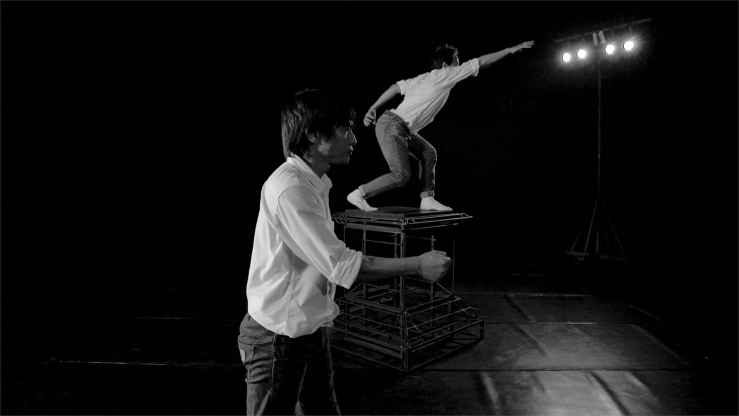Colony
COLONY is a three-channel video installation that reflects upon the genesis and self-destruction of large groups — may they be colonies or swarms — who are driven by an insatiable appetite for growth, and who harshly compete for limited resources on the same land. Guez interweaves iconic photographs of the 1915 locust plague with images from a hand-tinted photographic album commissioned to the American Colony by the Ottoman (1915) and British Empires (1930).
At the beginning of the First World War, large swarms of locusts raided Egypt, Syria, and Palestine, destroying the regionʼs agriculture, which lead to food shortages and inflation. This plague exacerbated the already dramatic conditions of the war and quickly led to famines. COLONY begins with the interpretation of a dream: It is predicted that seven years of abundance will be followed by seven years of famine so great that the times of opulence will not be remembered — a reference to the Old Testament, but also an inquiry into the conditions that future generations may expect as a consequence of the global climate breakdown.
Throughout history, farmers have often struggled to resist the multiple invasions of colonies. The artist is intentionally ambiguous about their nature, and the Arabic narrating voice never directly mentions the components of the colony, leaving it open to interpretation. However, the work strongly suggests that each individualʼs behavior undergoes a radical change when joining a group; each individual is harmless, but the synchronized whole may become ruthless. The locust plague thus becomes a metaphor with which to describe the behavior of colonies of any kind, in which individuals are brought together by a sense of shared identity and destiny, but also by a will to dominate and an insatiable appetite for growth that ultimately leads to their own destruction. As stated by the narrating voice: »Swarms are, by their very nature, a temporary occurrence. Every colony is doomed to collapse upon itself, abruptly ceasing to exist.«
The work is based on a five-year study conducted by Guez in the Library of Congress archives in Washington, D.C., and in the archives of the American Colony — a group established in Jerusalem in 1881 by members of a Christian utopian society formerly living in Chicago. Some photographs in the archive have been damaged by the water, their destroyed emulsion now resembling a Rorschach test. This visual correspondence makes one wonder whether the video is also conducting a psychological test on the viewer in order to examine their emotional reaction to the functioning of a colony of any kind. (Vanina Saracino)
Commissioned by The American Colony Archive, Jerusalem
Supported by The Rose Art Museum, Waltham, Massachusetts, USA
*We can only show an excerpt of this work in the online archive. For the complete version, please contact the artist.
Images: Dor Guez, Colony, 2022 © Dor Guez
About the video
About the artist
- 1982 in Jerusalem, lives and works in Jaffa.
Received a Ph.D. from Tel Aviv University and earned his professorship from Bezalel Academy of the Arts and Design, Jerusalem

